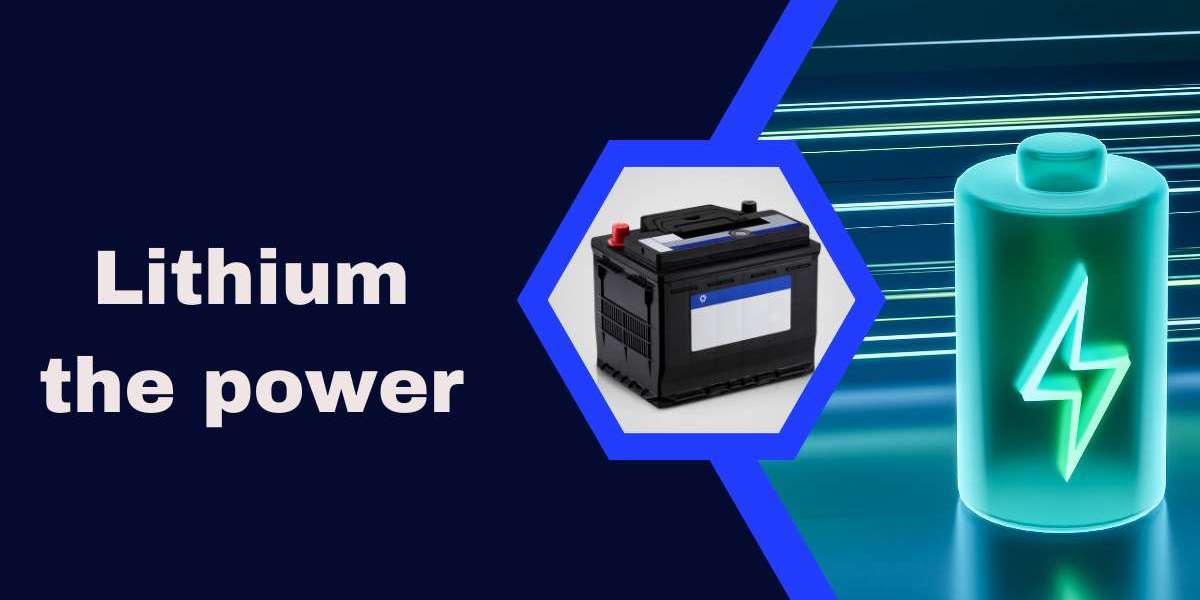Lithium is a soft, silvery-white metal that plays a critical role in powering the world's most advanced technologies. From smartphones to electric vehicles (EVs), lithium is at the heart of the energy revolution, making it one of the most sought-after elements today. This lightweight metal is reshaping industries, offering efficient energy storage solutions, and contributing to the global push toward sustainability.
What is Lithium?
Lithium is the lightest metal on the periodic table, symbolized by the atomic number 3. It's highly reactive and has unique properties that make it perfect for use in batteries, especially lithium-ion batteries. These batteries are widely recognized for their ability to store significant amounts of energy relative to their size and weight. As a result, lithium has found its way into almost every modern gadget we use today.
Why is Lithium So Important?
The increasing demand for lithium is primarily driven by its role in the energy storage market. Whether you're using a laptop, smartphone, or an electric vehicle, chances are you're relying on lithium-based batteries. Here's why this element is indispensable:
- Energy Density: Lithium batteries have a higher energy density compared to other types of batteries, meaning they can store more energy while remaining compact.
- Rechargeability: Unlike traditional batteries, lithium batteries can be recharged hundreds, if not thousands, of times, making them ideal for consumer electronics and electric vehicles.
- Environmental Impact: The world is shifting towards renewable energy sources like solar and wind. Lithium-ion batteries are pivotal in storing this energy, ensuring a stable supply even when the sun isn't shining or the wind isn't blowing.
Applications of Lithium
From powering our homes to enabling space travel, lithium is a game-changer. Some of its most prominent applications include:
- Electric Vehicles (EVs): Lithium-ion batteries are essential for EVs, providing the power needed for long-distance travel on a single charge. As of 2023, global electric vehicle sales have surged, with lithium playing a pivotal role in reducing carbon emissions.
- Consumer Electronics: Devices such as smartphones, laptops, and tablets rely heavily on lithium batteries for portability and efficiency.
- Energy Storage: Renewable energy systems, particularly solar and wind, require efficient energy storage. Lithium-ion batteries provide a reliable solution for storing energy during peak production times and distributing it when needed.
- Aerospace: The aerospace industry utilizes lithium for its lightweight properties, helping to reduce weight and improve efficiency in aircraft.
The Future of Lithium
As we transition to cleaner energy sources, lithium will remain an essential element. According to industry experts, the global demand for lithium is expected to triple by 2030. This surge is primarily due to the increased adoption of electric vehicles and the growing renewable energy sector.
In fact, a study conducted by the International Energy Agency (IEA) reported that in 2020 alone, the demand for lithium increased by nearly 30% as electric vehicle production ramped up globally. This figure is expected to rise even further in the coming years as more countries commit to net-zero emissions targets.
Lithium vs Other Battery Materials
While lithium is the leading material in battery technology, it's not the only option. Let's compare lithium with other battery materials:
- Nickel-Cadmium (NiCad): These batteries are less efficient and have a lower energy density compared to lithium. They are also bulkier, making them less suitable for portable devices.
- Lead-Acid: Commonly used in traditional car batteries, lead-acid batteries are much heavier and less efficient than lithium batteries. They are also not as environmentally friendly due to their lead content.
- Sodium-Ion: An emerging technology, sodium-ion batteries are cheaper than lithium batteries but have a lower energy density. They may become a viable alternative for specific applications, but lithium remains the superior choice for now.
Challenges of Lithium Extraction
While lithium is essential for powering our modern world, its extraction comes with environmental challenges. Lithium is primarily mined in regions like Australia, Chile, and Argentina. The extraction process involves evaporating large amounts of water, which can negatively impact local ecosystems. As a result, there is growing pressure on mining companies to develop more sustainable extraction methods.
How Safe Are Lithium Batteries?
Safety is a significant concern with lithium-ion batteries, particularly overheating and potential fire hazards. However, advancements in technology have significantly reduced these risks. Many modern lithium-ion batteries come equipped with safety features such as thermal management systems that prevent overheating.
In fact, according to a report by the National Renewable Energy Laboratory (NREL), lithium-ion batteries are among the safest battery types available, with only 1 in 10 million units experiencing failure.
Lithium and the Circular Economy
Recycling lithium is becoming an essential part of the battery production process. With the increasing demand for lithium, recycling can help alleviate the pressure on natural resources. According to some reports, around 5% of lithium-ion batteries are currently being recycled, but this figure is expected to rise as recycling technologies improve.
Lithium Market Trends
As of 2024, the global lithium market is booming. Here are some key trends:
- Price Increase: The price of lithium has surged in recent years due to the rising demand for electric vehicles and energy storage solutions. In 2021, the price of lithium carbonate increased by nearly 300%.
- New Mining Projects: To meet growing demand, new lithium mining projects are being developed in regions like North America and Europe.
- Technological Advancements: Innovations in battery technology, such as solid-state batteries, could increase the efficiency and safety of lithium-based energy storage systems.
Lithium in Everyday Life
Even if you don't drive an electric vehicle or own the latest smartphone, lithium impacts your life in more ways than you might realize. For example:
- Medical Devices: Many medical devices, including pacemakers and hearing aids, rely on lithium batteries to function reliably over long periods.
- Power Tools: Cordless drills, saws, and other power tools often use lithium-ion batteries, allowing for portability without sacrificing power.
The Environmental Impact of Lithium
While lithium is crucial for reducing carbon emissions, its extraction and production do have environmental consequences. Mining lithium can lead to soil degradation, water shortages, and loss of biodiversity in the surrounding areas. However, efforts are being made to develop more sustainable practices, including battery recycling and eco-friendly extraction techniques.
Conclusion
Lithium is far more than just a component of your smartphone battery. It's a vital element driving technological advancements in numerous industries, from transportation to renewable energy. As global demand for energy storage grows, so will the demand for lithium, making it one of the most critical elements for our future. With continued innovation in battery technology and more sustainable mining practices, lithium will undoubtedly play a significant role in shaping a greener and more efficient world.







